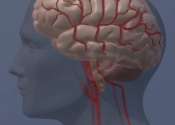Study pokes holes in fetal alcohol hypothesis
A new study published in the journal Brain Behavior and Immunity appears to challenge the theory that cells in the brain's immune system are the culprit behind the neurological damage that occurs in children exposed to alcohol ...
Oct 4, 2017
0
22








